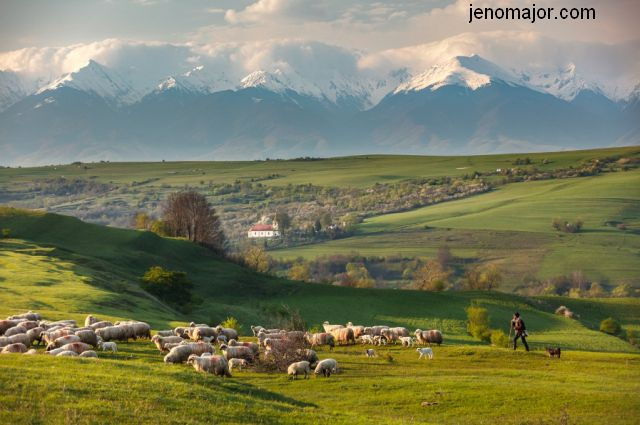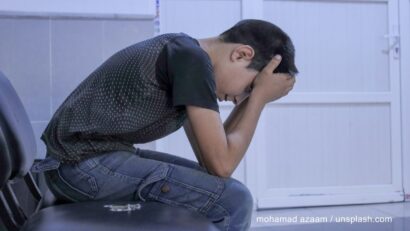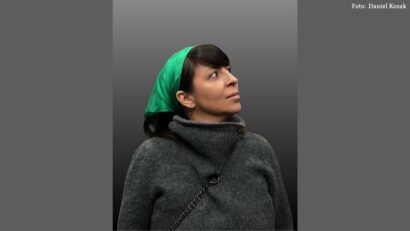Jeno Major’s Romania
Archaic Romania in professional photographs

Roxana Vasile, 06.09.2023, 14:00
We’re still early into the summer season and we’re extending an
invitation to you all: why don’t you join us for a radio journey at the heart
of the archaic Romanian village? Our guide is an actor with the Gong Children
and Youth Theater in Sibiu, Jeno Major. Passionate about photography, whenever
he has some time off, Jeno Major travels around the country, far and wide, in a
bid to have snapshots of people and breathtaking landscapes. Jeno Major:
It happened eight
years ago, it just happened at one fell swoop. I was a very passionate angler
and after I gave up fishing I changed my life, I began with photography. At
present, I have also started to include human beings in the landscape since they render
the frame livelier,
I also took advice from Sorin Onișor, a good friend of mine, whose workshops I ‘ve
been to when they first kicked off and from whom I learned so many things. First
off, the relationship with the people as I was afraid to take pictures of
people, that is why I photographed only landscapes…the relationship with the people
is pretty difficult, as you all know, yet he had a gift, well, he still has
that gift, as we speak, that of interacting with people, he can enter people’s
hearts in just a few seconds and I tried to learn a little bit from him and, in
time, I could photograph people myself, I could include people in my
landscapes, in a bid to put life into the latter, as he also said, as he was
saying they were barren, without people in them. And that’s how I began to
get acquainted with the village life and make ethnographic photography. I had
no relatives in the countryside, as a child, I didn’t have any contact with the
livestock, with all things rustic, rural, with the villages. Now I have the
opportunity to do that through photography. I can’t stand mingling with many
people, I don’t like the the hullaballoo, I hate the crowds. That is why I take
refuge, whenever I can, on the hills, in nature. I have liked nature and the trekking
even since I was little and that’s what I do now, whenever I have some time
off.
Sunrises or sunsets over mountain ridges, mist lifting above a
village, isolated trees, people mowing, an old woman fetching firewood, a
shepherd climbing down with his sheep, a cow on a hilltop, forgotten trades, all
of them, through Jeno Major’s photographs, tell the story of places in deep
Romania, some of them unbeknownst to Romanians themselves. Jeno Major:
We still have, as compared to other countries in Europe and
beyond, the world over, that kind of archaic characteristic, the tradition,
the traditional apparel, the church, the chaise, the wagon, the hay…you cannot find such things in other countries. Foreigners ask me, when they see the
haystacks in my photographs, what are these…They haven’t seen something like
that for several hundred years. They ask me if there are
people living there. That’s what the archaic traits and the Romanian tradition consist of. We still have God-forsaken villages in the Apuseni Mountains,
mainly, the place where you can travel a couple of hundred years back in time. If
you take a picture there you cannot date it exactly. The most beautiful place I
like best, in Romania, in terms of landscape photography and more, like I said
I make ethnographic photography as well, is the Ponor Fundatura of Sureanu
Mountains. There you can return a couple of dozen times, a couple of hundred times,
and each time the situation is different. Mist,
steam, frost, steaming haystacks, people with their
livestock at every bend, in every corner…after each rock there is something to
photograph. It is one of the most beautiful places in Romania, if you ask me…The
hay wagon, bulls drawing a yoke, the peasant in traditional apparel, the innate hospitality
of the villagers who live in those remote villages, deep in the mountains, who do not have very good access roads to those villages…There, people are humbler,
closer to God, more faithful, more kind-hearted…You know how village people are
like! That is why foreigners come over, because they cannot find something like
that anywhere else. They had something like that a long, long time ago, only
their great-great parents had something like that 200, 300 years ago. We still have those things.
The Ponor Fundatura, the Ponor Dear end, is
recurrent in Jeno Major’s stories. However, says he, and he doesn’t claim to be
the Center of the universe, the entire archaic, traditional Romania is extraordinary.
As for the peasants inhabiting it, elderly people, they are still hospitable,
open and warm-hearted, something you don’t see that much of, in today’s world.
I can still
remember an old woman from Maramures, she was 92. I think she’s gone, the poor
thing, she passed away, that’s for sure, as that happened in the early days of
my photography undertaking, it was 6 or 7 years ago and I don’t know if she is
still alive…I went to see her and she was working in a house made of clay
bricks, with an earthen floor, a bulb hanging down from the ceiling with a yellowed
newspaper around it, a table and a bed. On that table there was a crust of bread. tI was like a movie scene; it was something fantastic. Her face was reflecting
the light from the window as she was seated in bed. It was a wonderful frame! First
time, we had some small talk, she told me the whole story of her life, of her
children’s life, of her nephews who were abroad, as you need to make friends
with somebody and after that, in five or ten minutes’ time, any villager opens
up, they are like an open book, they tell you everything straight away and offer
everything. What I’m trying to say is that, actually, that woman, that old
woman, when we left, she had six eggs under a broody hen, they were the only
ones, I don’t think she had something else around the house, it was the only
food she had but she deprived herself of it and gave them to me. There were more of us photographers,
we refused her, we didn’t want to take them, but she insisted so much that we
left accepting the eggs, and other things as well…
According to the connoisseurs, Jeno Major’s
photographs are not just landscapes or mere portraits, they are priceless
testimonies of a world gradually disappearing in the grinder of modernity. He
admits that himself.
Unfortunately, yes, I think that, given the
pace things are moving at, I think that in one, maybe two generations at the
most, the entire archaic and traditional traits will become extinct, because
there are many people from all over the country who have left, from Maramureș,
Bucovina, Transylvania, from everywhere. If you talk to the village people,
there isn’t a single family without at least one member, a child, a nephew, a
brother, who are gone abroad, and they return with a tiny bit, with a little bit of money,
I don’t know how much money they make the years they’ve been hanging out there to
make a buck, they bring down those very beautiful houses they have and
build some…how shall I put it…some kitschy houses. It is incredible, what happens,
and the traditional houses disappear, unfortunately. Something should be…I don’t
know, something should be done about that so we can keep them, but I don’t
know how something like that should be done.
Let us make the most of all these beautiful things while we can because,
gradually, they will become extinct! Or at least that’s what Jeno Major says. All
the beautiful things will only remain in the photographs of those who, just
like him, might be nostalgic as they say, in a couple of years’ time: That
used to be my Romania!






























